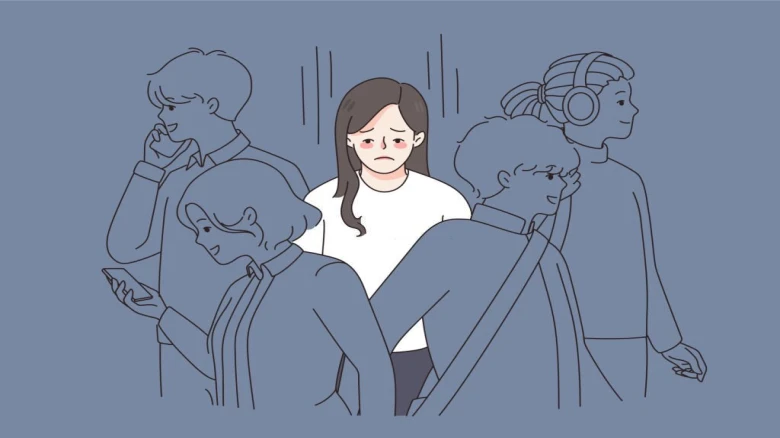Sports

Attending social events, and parties, or interacting with others can be extremely distressing for individuals who suffer from social anxiety.
Digital Desk: Many people, especially youngsters, suffer from social anxiety, which is a common condition. It denotes an ongoing sense of anxiety, tension, unease, and terror surrounding individuals in regular social settings. People who experience social anxiety frequently attempt to avoid these situations by avoiding coming to such events or isolating themselves to avoid being evaluated or humiliated by others. This is because they believe they are always being made fun of or judged by others. Because they are avoiding social situations, they run the risk of feeling alone and isolated in both their personal and professional lives. Attending social events, and parties, or interacting with others can be extremely distressing for individuals who suffer from social anxiety.
Being shy isn't the only aspect of social anxiety. It may have an impact on the person's physical and mental health. Increased heart rate, perspiration, shaking, a persistent need to cry, a sense of loneliness, trouble speaking, avoiding eye contact, avoiding crowded areas, and a lack of confidence are some examples of this. More serious mental health conditions like depression, eating disorders, and post-traumatic stress disorder (PTSD) might develop from this illness if treatment is not received.
5 Ways to Deal With Social Anxiety
1. Deep breathing: When experiencing social anxiety, people with the disorder frequently find it difficult to breathe. When you feel provoked, it's always a good idea to step back, close your eyes, and sit down to calm yourself. Take four or five deep breaths. One relaxation method that can help lower your heart rate and blood pressure is deep breathing.
2. Identify your triggers: The first line of defense against social anxiety is figuring out exactly what makes your symptoms worse. Since each person has a distinct personality, triggers might differ from person to person. Public gatherings may trigger some persons, whereas public speaking or eating in front of others may trigger others. To discover the right answer, you can also record your pinpoints in a notebook.
3. Prepare yourself mentally: Before attending any social function or gathering, it is crucial to mentally prepare oneself. Consider good outcomes while attempting to de-stress. Tell yourself that while feeling nervous and apprehensive is normal, it's also a terrific chance to explore new things, make new friends, and enjoy yourself with others.
4. It's acceptable to make mistakes: Understanding that nobody is flawless and that errors are inevitable in daily life is crucial. Strive to avoid dwelling on the worst-case scenarios all the time, like getting awkward or making any social faux pas. Rather, concentrate on enjoying the present and living in the now.
5. Seek Support: Don't be afraid to ask friends, family, or mental health specialists for assistance. Talking to reliable people about your emotions and experiences might help you feel validated and reassured. To acquire coping mechanisms and important insights into handling social anxiety, think about going to therapy.
Leave A Comment